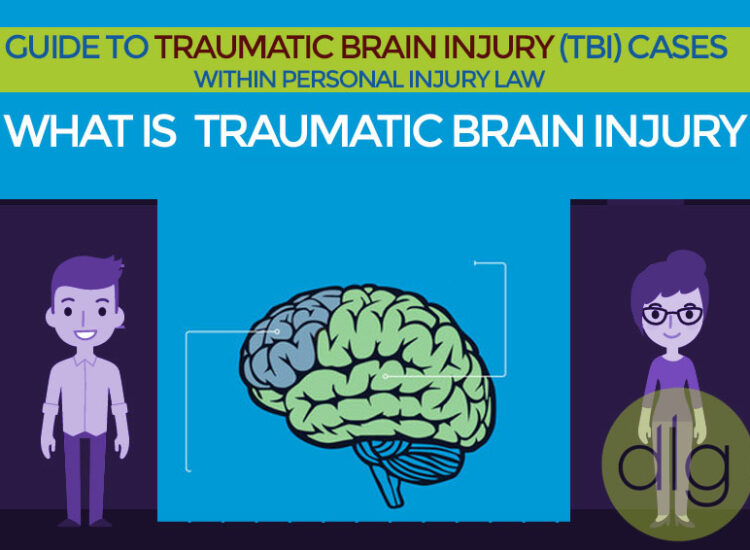The rising cost of healthcare leaves many families searching for affordable alternatives. OneShare Health, a healthcare sharing ministry, presents a unique model that allows members to share medical costs among themselves. However, its effectiveness varies widely depending on individual needs and circumstances. This article analyzes OneShare Health insurance reviews to provide a balanced perspective on its strengths and weaknesses.
Toc
- 1. Understanding OneShare Health’s Structure and Function
- 2. OneShare Health Plan Options: Cost and Coverage
- 3. Related articles 01:
- 4. OneShare Health Reviews: Member Experiences and Complaints
- 5. OneShare Health Provider Network and Access to Care
- 6. Pre-existing Conditions and OneShare Health Coverage
- 7. OneShare Health vs. Medi-Share: A Detailed Comparison
- 8. Related articles 02:
- 9. Addressing the OneShare Health Lawsuit and Legal Concerns
- 10. Conclusion
Understanding OneShare Health’s Structure and Function

OneShare Health operates under the healthcare sharing ministry (HCSM) model, which is fundamentally different from traditional health insurance. This model encourages members to share medical costs, fostering a sense of community and shared responsibility. Founded in 2018 in Irving, Texas, OneShare Health draws on principles from the Anabaptist faith, emphasizing mutual aid and support among its members.
Unlike traditional insurance plans, OneShare Health is not regulated under the Affordable Care Act (ACA). This exemption allows for lower monthly contributions but also means that members are not technically “insured.” Instead, they agree to contribute a certain amount to a collective pool that covers medical expenses for fellow members. Understanding terms such as “sharing amount,” “unshared amount,” “provider network,” and “lifetime sharing limit” is essential for effectively navigating the OneShare Health system.
OneShare Health offers three distinct program tiers designed to cater to different healthcare needs and financial situations:
Overview of Program Tiers
- Catastrophic Plan: Starting at approximately $115 per month, this plan is ideal for generally healthy individuals who want to minimize their monthly costs while still being protected against major medical events.
- Classic Plan: Priced from about $154 monthly, this tier provides a balanced approach, covering essential services and preventive benefits.
- Complete Plan: At around $239 per month, the Complete tier offers the most comprehensive coverage, making it suitable for families with ongoing medical needs. It includes coverage for pre-existing conditions after a waiting period of 12 months.
Pros and Cons of OneShare Health
Pros:
- Affordable premiums: Compared to traditional insurance plans, OneShare Health offers lower monthly contributions, making it an attractive option for those looking to reduce their healthcare costs.
- No network restrictions: Unlike many health insurance plans that require members to stay within a specific network of providers, OneShare Health allows members to choose any licensed doctor or hospital.
- Community support: As a faith-based organization, OneShare Health emphasizes the concept of mutual support and care among its members, creating a sense of community.
Cons:
- Not technically insurance: As mentioned earlier, since OneShare Health is not regulated under the ACA, members are not insured in the traditional sense. This may be a concern for some who want the security of being fully covered by insurance.
- Limited coverage for pre-existing conditions: While OneShare Health does offer coverage for pre-existing conditions after a waiting period of 12 months, this may not be suitable for those with significant ongoing medical needs.
- Shared responsibility: Unlike traditional health insurance where costs are shared between the insurer and individual through co-pays and deductibles, OneShare Health relies entirely on members sharing the costs among themselves. This may not be ideal for those who prefer a more defined cost-sharing structure.
Coverage Details and Comparisons
Each program tier provides varying levels of coverage for medical expenses, including doctor visits, hospital stays, emergency care, and prescription discounts. It’s crucial to weigh the pros and cons of each tier. For instance, while the Catastrophic plan has lower costs, it also comes with a higher out-of-pocket maximum for medical expenses compared to the Classic and Complete plans.
|
Plan Tier |
Monthly Contribution |
Coverage Highlights |
Pros |
Cons |
|---|---|---|---|---|
|
Catastrophic |
$115+ |
Emergency care, preventive services |
Lowest cost, ideal for healthy individuals |
Higher out-of-pocket maximum |
|
Classic |
$154+ |
Essential medical services, preventive care |
Balanced coverage for families |
Moderate monthly cost |
|
Complete |
$239+ |
Comprehensive coverage for ongoing needs |
Best for families with frequent healthcare needs |
Highest monthly cost |
Understanding the concepts of “sharing amounts” and “unshared amounts” within OneShare Health plans is crucial. The “sharing amount” refers to the portion of a medical bill that OneShare members agree to share among themselves, while the “unshared amount” represents the member’s responsibility. This distinction clarifies a key aspect of the HCSM model, helping members understand their potential financial obligations when seeking medical care.

Analyzing member experiences on platforms like Reddit, Yelp, and the Better Business Bureau (BBB) provides crucial insights into the practical realities of using OneShare Health.
Analysis of Online Reviews
Many members commend the affordability and community aspect of OneShare Health. Positive feedback often highlights the ease of enrollment and the supportive nature of the member community. However, there are notable complaints regarding slow reimbursement processes and challenges with pre-existing conditions.
On Reddit , users have shared their experiences with claims processing. While some noted that initial claims may take longer than anticipated, they praised the overall support from the OneShare Health team. Conversely, Yelp reviews frequently mention frustrations with the reimbursement timeline and coverage limitations. However, the positive experiences reported by some members should be considered alongside the criticisms, recognizing that individual experiences can vary greatly depending on factors like health status and the specific claims processed.
Common Complaints
A recurring issue in OneShare Health reviews pertains to pre-existing conditions. Many members express dissatisfaction over the limitations placed on these conditions, which can significantly impact healthcare costs. Prospective members should be aware that pre-existing conditions may not be covered under certain plans, which could be a critical factor for families with ongoing medical needs.
Moreover, the slow reimbursement process has been a common theme in member complaints. Users have reported extended wait times for claims processing, which can create financial strain during medical emergencies. However, the company has acknowledged these concerns and is working on improving response times, as noted in recent reviews.
Provider Network Overview
OneShare Health partners with the First Health provider network, offering a broad selection of healthcare providers across the United States. This extensive network includes primary care physicians, specialists, hospitals, and other medical facilities, ensuring members have access to a wide range of medical care. Members are encouraged to seek care within the network to minimize costs, as out-of-network care is allowed but often results in significantly higher out-of-pocket expenses. This flexibility can be beneficial in emergencies or when specific providers are not available within the network, but members should carefully consider the potential financial impact.
Accessing Specialized Care
Accessing specialists within the OneShare Health network can sometimes be challenging, particularly for those living in rural or less populated areas where healthcare options are more limited. In these cases, members may need to travel longer distances to see in-network specialists, making it harder to receive timely treatment for certain conditions. To help bridge the gap, OneShare Health offers telehealth services, enabling members to consult with healthcare professionals remotely. While telehealth can be a convenient alternative, it is important to note that not all types of care or treatments are covered through this service. Telehealth is especially useful for general consultations and follow-ups but may not be suitable for more complex or hands-on medical needs. Members should explore all available options to ensure they receive the care they require.
Pre-existing Conditions and OneShare Health Coverage
Policies on Pre-existing Conditions
Understanding OneShare Health’s policies on pre-existing conditions is vital for prospective members. Generally, pre-existing conditions are not covered if treatment or services were sought within two years prior to enrollment. However, some plans may offer limited coverage for routine maintenance of specific conditions, such as diabetes or hypertension, under certain circumstances.
Cost-Sharing for Pre-existing Conditions
Members with pre-existing conditions should be prepared for additional cost-sharing arrangements. While routine maintenance may be eligible for sharing, significant medical interventions often fall outside the coverage umbrella. It’s essential for potential members to review their medical history carefully and consult with OneShare Health representatives to clarify coverage options.
It’s important to note that some individuals may find HCSMs like OneShare Health more affordable than traditional insurance, even with limitations on pre-existing conditions. This affordability can be particularly appealing to those who may not have access to comprehensive insurance plans due to high premiums.
Financial Stability and Sustainability of HCSMs
The financial stability and sustainability of Health Care Sharing Ministries (HCSMs) like OneShare Health are paramount for members relying on these organizations to manage healthcare expenses. Unlike traditional insurance providers, HCSMs operate on a faith-based cost-sharing model, where members contribute monthly sharing amounts to assist others in the community with their medical bills. This collaborative approach relies heavily on the collective participation and timely contributions of all members.
One key factor influencing the sustainability of HCSMs is their ability to maintain a balance between incoming contributions and outgoing shared expenses. Transparency in fund allocation and operational costs is critical to fostering trust among members. While HCSMs often tout lower costs than conventional insurance plans, members must be aware of the inherent risks, such as fluctuating sharing amounts or the possibility of unfulfilled financial obligations during times of high demand.
Furthermore, regulatory oversight varies by state in the U.S., which can impact the operational framework of HCSMs. Since these organizations are not classified as insurance, they are generally exempt from meeting certain requirements imposed on traditional insurers, such as solvency standards or coverage mandates. Prospective members should conduct thorough research to understand the financial stability of a specific HCSM, including reviewing publicly available financial reports and member feedback.
By maintaining their community-focused model and addressing member concerns proactively, HCSMs like OneShare Health can enhance their financial viability while continuing to offer an affordable healthcare alternative.

Overview of Medi-Share
Medi-Share is another prominent healthcare sharing ministry that operates similarly to OneShare Health. While both organizations function under the healthcare sharing model, Medi-Share has more stringent membership requirements, including adherence to a specific Statement of Faith.
Side-by-Side Comparison
|
Feature |
OneShare Health |
Medi-Share |
|---|---|---|
|
Membership Requirements |
Non-denominational Statement of Beliefs |
Christian Statement of Faith |
|
Monthly Contributions |
Starting from $115 |
Starting from $130 |
|
Coverage Options |
Catastrophic, Classic, Complete |
Various plans with different AHPs |
|
Network Restrictions |
First Health network |
Varies by location |
|
Lifetime Sharing Limit |
$1,000,000 |
No lifetime limit |
Choosing Between the Two
When deciding between OneShare Health and Medi-Share, families should consider their healthcare needs, budget, and personal values. OneShare Health’s broader acceptance criteria may appeal to those seeking a less restrictive environment, while Medi-Share’s commitment to a Christian community may resonate with faith-driven individuals.
Addressing the OneShare Health Lawsuit and Legal Concerns
Summary of Legal Issues
In recent years, OneShare Health has encountered a range of legal challenges, including lawsuits that have sparked concern among both current and prospective members. These legal issues largely stem from questions surrounding the company’s business practices and the transparency of its communication about coverage details and limitations. Specifically, some lawsuits have alleged that OneShare Health may not have adequately clarified the terms of its health-sharing model, leaving members uncertain about what is covered and what is not. These cases highlight the importance of clear and consistent communication in building trust with members.
Implications for Members
For members, staying informed about these legal matters is essential to understanding how they might be affected. While many of these lawsuits do not directly disrupt daily operations or the current services provided, they can create a sense of uncertainty regarding the stability and reliability of the organization. Members are encouraged to keep an eye on updates from OneShare Health, particularly regarding the outcomes of these legal proceedings, as they could result in changes to coverage, terms of service, or overall operations. By staying proactive and informed, members can ensure they are prepared for any adjustments and can make well-informed decisions about their healthcare options.
Conclusion
In summary, OneShare Health insurance reviews reveal a unique alternative to traditional health insurance through its healthcare sharing ministry model. While it offers affordable options for families seeking coverage, potential members must carefully weigh the benefits against the limitations, particularly regarding pre-existing conditions and network access. By examining OneShare Health insurance reviews from platforms like Reddit, Yelp, and the BBB, understanding plan options, and addressing common concerns, families can make informed decisions that align with their healthcare needs and budget.
Furthermore, considering the insights from OneShare Health insurance reviews , including updates on the OneShare Health lawsuit and comparisons with Medi-Share reviews, potential members can navigate the complexities of healthcare sharing ministries more effectively. For personalized assistance, contacting OneShare Health directly is a recommended step for those interested in exploring their options further.











